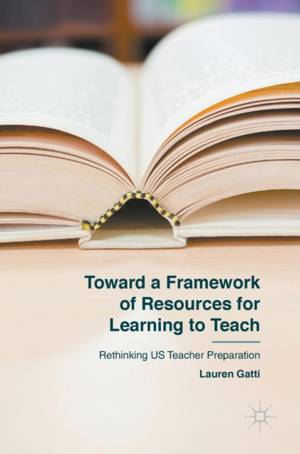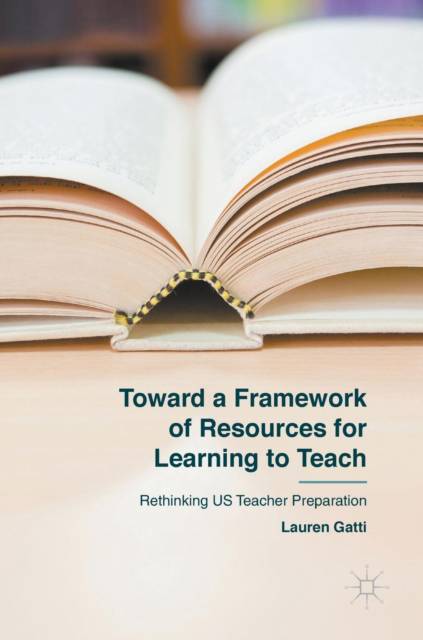
- Retrait gratuit dans votre magasin Club
- 7.000.000 titres dans notre catalogue
- Payer en toute sécurité
- Toujours un magasin près de chez vous
- Retrait gratuit dans votre magasin Club
- 7.000.000 titres dans notre catalogue
- Payer en toute sécurité
- Toujours un magasin près de chez vous
Toward a Framework of Resources for Learning to Teach
Rethinking Us Teacher Preparation
Lauren GattiDescription
This book advances a new framework for learning to teach, using in-depth case studies to show how learning to teach--in any type of program--can best be understood as a recursive and dynamic process, wherein teachers differentially access programmatic, relational, experiential, disciplinary, and dispositional resources. In the last twenty years, debates in the field of teacher preparation have increasingly become paralyzing and divisive as rhetoric around the failure of university teacher preparation intensifies. The author addresses the historical and practical factors that animate these debates, arguing that novice teachers and teacher educators must understand the central conflicts in the field; however, the book also advances a way of approaching learning to teach that accounts for but does not get stuck at the level of programmatic designation. Using lively, in-depth case studies, the author shows how novice urban English teachers from two different teacher preparation pathways--a university-based program and an urban teacher residency--learn to teach within a policy context of high-stakes testing and "college readiness."
Spécifications
Parties prenantes
- Auteur(s) :
- Editeur:
Contenu
- Nombre de pages :
- 206
- Langue:
- Anglais
Caractéristiques
- EAN:
- 9781137501448
- Date de parution :
- 20-08-16
- Format:
- Livre relié
- Format numérique:
- Genaaid
- Dimensions :
- 154 mm x 220 mm
- Poids :
- 394 g







